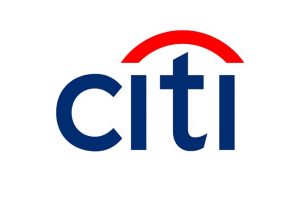Citi Research which is a part of Citigroup Global Markets Limited, has projected that telecommunications giant; Safaricom’s net earnings will grow from 74.7 billion Kenyan Shillings (which was posted in the financial year which ended on the 31st of March 2020), to 78.7 billion Kenyan Shillings by 2023.

Analysts at Citi Research have recommended a buy for investors looking to purchase Safaricom shares. It has set a target price of 33.1 Kenyan Shillings.
The analysis by Citi Research (an establishment committed to providing institutional investors and individual investors with much needed objective and independent research that cuts across various sectors, companies, economics, geopolitics, asset allocation and investment strategy), says Safaricom’s growth is steered by its growth in data revenue, as well as earnings from its mobile money service; M-Pesa.
According to Citi Research, “We are optimistic in our outlook for M-Pesa growth, and see merchant payments and digitalization of trade as opportunities ahead. Competition should remain elevated going into the 2021/22 financial years; however, we see this as a source of short-term pressure on growth, in the longer term we see the case for competition to be rational.”
Citi Research also forecasts that for the financial year which will end on the 31st of March 2021 the net earnings for Safaricom, will drop to 54.1 billion Kenyan Shillings before eventually going back up to 74.22 billion Kenyan Shillings by 2022.

The projected drop in Safaricom’s net earnings for the financial year which will end on the 31st of March 2021, is as a result of the decision by the Central Bank of Kenya (CBK) to stop transaction fees for several mobile money services in Kenya. The decision was a direct response to the ongoing Coronavirus pandemic and the financial strains it has put on various individuals and business in the country.
After monitoring data released by Equity and KCB; two banks that are listed publicly, the Communication Authority of Kenya, and the Central Bank of Kenya (CBK), Citi Research discovered that the number of digital loans experienced a drop which in turn, negatively affected the revenues of telecommunications companies and banks.
Citi Research stated that, “The number of digital loans declined in Q2,2020, based on data from KCB, which is one of Safaricom partners in micro lending i.e. KCB M-Pesa and Fuliza overdrafts. KCB also reported an increase in rollover requests and NPLs.”
Telecommunications giants like Safaricom also lost mobile money transfer revenue, after the transaction fees on amounts from 1,000 Kenyan Shillings and below, got waived.
Citi Research revealed that there was a decline in the average value of P2P (Person To Person) transactions quarter on quarter from 1,500 Kenyan Shillings, to 1,300 Kenyan Shillings.
The decline is attributed to mobile money users now opting to carry out their transactions in smaller denominations that are within the 1,000 Kenyan Shillings and below bracket, to avoid charges.

In the second quarter of 2020 POS (Value Point of Sale) transactions dropped as well. Citi Research feels the decline is as a result of formal trade have much lesser work hours due to measures like travel restrictions and night curfews aimed at curbing the spread of the coronavirus pandemic.
Growth in agency transactions like withdrawals and deposits, dropped until June 2020. There tends to be a connection between Purchase Managers Index (PMI) data and Growth. The Purchase Managers Index (PMI) data also indicated a decrease in the economy that has experienced a drop in production and demand. Permanent cost optimization may have also occurred between January 2020 and July 2020.
Citi Research said, “Decline in agency transactions appears to have been driven by a decline in cash withdrawals. Mobile money deposits grew 4% quarter on quarter in Q2,2020, which points to mobilization of cash into wallets. Cash withdrawals, based on the data reported by financial institutions, declined through 1H20/ 2Q20.”
Citi Research in its outlook pointed out a number of risks in Safaricom’s way, like tough competition which could arise from the regulators supporting smaller contenders.
One more risk to Safaricom’s competitive advantage via M-Pesa, is if agent interoperability is considered as an option in the future.
Another risk is the increase in data usage, alongside continued smartphone penetration which would in turn out more pressure on the voice revenue of Safaricom.
The entry of an international payment platform into the Kenyan market could also pose a somewhat huge risk to Safaricom. Especially if the new entry opts for cheaper transaction costs as a strategy for gaining market share.
Are there any other topics, news or categories that you would like us to write on? Feel free to reach out to Mpesa Pay in the comment section.


